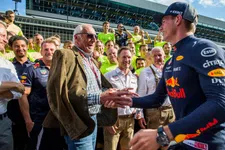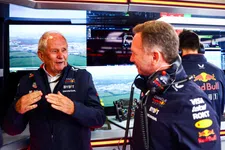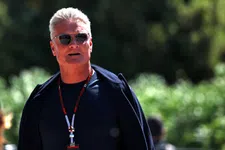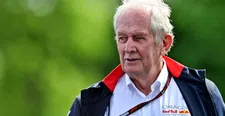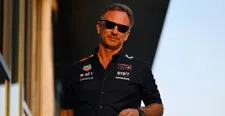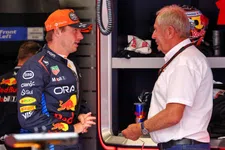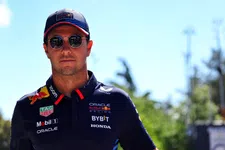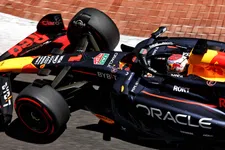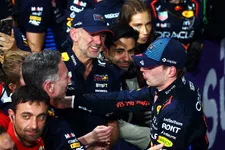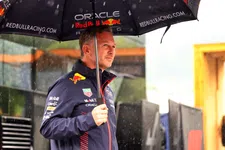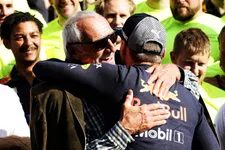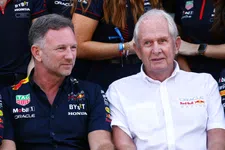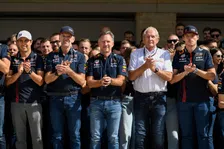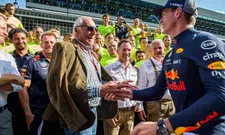Founding of Red Bull
It was while on a business trip for Blendax that Mateschitz came across a Thai drink called Krating Daeng, which literally translates to “Red Bull.” He heard from locals that the drink gave them an energy boost, and he noted that it did indeed help with his jet lag. Two years later, he founded Red Bull together with Chaleo Yoovidhya, the creator of Krating Daeng.
Both partners invested $500,000 and took a 49 percent stake in the newly created company. The remaining two percent went to Chalerm, Chaleo's son, leaving the Yoovidhya family with a majority stake. However, Mateschitz was about Red Bull's operational matters.
First step to F1
Mateschitz had a great affinity with motorsport and invested in it early on, starting with sponsoring F1 driver Gerhard Berger. He also supported drivers in junior categories, initially through a relationship with F3000 and F3 team owner Helmut Marko, who would later become his chief motorsport advisor.
Until the end of 2001, Red Bull was the main sponsor of Sauber, of which it owned more than 60 per cent. However, the brand decided to end the partnership when the F1 team opted to sign Kimi Raikkonen instead of Red Bull protégé Enrique Bernoldi.
Red Bull Racing and Scuderia Toro Rosso
After this, Mateschitz went looking for his own F1 team and found it in the form of Jaguar Racing. He bought the team in November 2004, before renaming it Red Bull Racing. Together with Marko, he decided to hire the very young Christian Horner as team boss, and in 2005, top designer Adrian Newey also joined the team.
The following year he did the same with the Minardi team, which he bought from Paul Stoddart together with his good friend and former F1 driver Gerhard Berger and subsequently renamed Scuderia Toro Rosso. In 2021, Toro Rosso was renamed AlphaTauri, Red Bull's fashion brand.
World titles with Vettel and Verstappen
The rest is history: Red Bull Racing achieved enormous success in F1, initially with Sebastian Vettel. The German became world champion four times in a row with the team. In 2021, 2022 and 2023, it happened again: Max Verstappen became world champion twice in a row with Red Bull, and the team won the constructors' title in 2022 and 2023.
Mateschitz supported many car and motorsport classes for almost thirty years: from Formula 1, 2 and 3 to rallying, NASCAR and DTM, and from MotoGP to the Superbike World Championship and Motorcross. Since 2007, motorsport has even had a separate class called the Red Bull Rookies Cup, in which young talents can show what they have to offer on exactly the same equipment.
Red Bull Ring
At the end of 2004, Mateschitz bought the then A1-Ring (previously known as the Österreichring), where the Austrian Grand Prix was held until 2003. The circuit was renamed the Red Bull Ring and Mateschitz had big plans for it, but was thwarted by protests from local residents and a lender who withdrew from the project. Moreover, the circuit had already been partly demolished during the design phase, making it no longer suitable for races.
This made the circuit's survival seem highly uncertain, but Mateschitz managed to bring about a turnaround. Renovations continued in 2008, albeit less extensively than originally intended. In 2011, the circuit was reopened, and another DTM race was held. In 2014, Formula 1 returned to the Red Bull Ring and in 2016, the circuit also returned to the MotoGP calendar after an absence of 19 years.
Wings for Life
In 2004, Mateschitz founded a non-profit foundation called Wings for Life together with Heinz Kinigadner. The foundation is committed to spinal cord research and its mission is to find a cure for spinal cord injury. The foundation annually organizes the Wings for Life World Run, in which people worldwide cover the longest possible distance at the same time. Many athletes sponsored by Red Bull participate annually in the event, with all proceeds going to spinal cord research.
Instead of just continuing to invest amounts of money into the foundation, Mateschitz ensured that Wings for Life became completely free of charge. The idea behind this was that the foundation could continue to exist independently, even after he died.
Hangar-7
Mateschitz founded his own hangar called Hangar-7, where his collection of old aeroplanes and helicopters is kept. He himself had a pilot's license and enjoyed flying his Falcon 900 and Piper Super Cub. The private museum also houses F1 cars from Red Bull Racing, Toro Rosso and Sauber. The hangar also serves as home base for the Flying Bulls, a fleet of historic aircraft that are regularly seen at air shows. The private museum is free to visit and, in addition to the sights, has a bar, lounge and a two-star restaurant.
In addition to car and motorcycle sports, Mateschitz was also very active in the football world. For example, he founded a German football club called RB Leipzig. That team reached the Bundesliga and in 2020 reached the semi-finals of the Champions League. In addition, Mateschitz bought the Austrian football club SV Austria Salzburg and the American football club MetroStars, which were subsequently renamed to Red Bull Salzburg and New York Red Bulls respectively. He also founded the Red Bull Brasil football team and took over Red Bull Clube Atlético Bragantino, both based in the state of São Paulo.
Private life
Despite his influential position and Red Bull's worldwide fame, Mateschitz avoided the spotlight and led a secluded life. He watched most F1 races on television and only visited his two teams in the paddock sporadically, despite his heavy involvement in the sport. Mateschitz enjoyed a quiet life in the picturesque Salzkammergut, where he stayed until his death on October 22, 2022.
